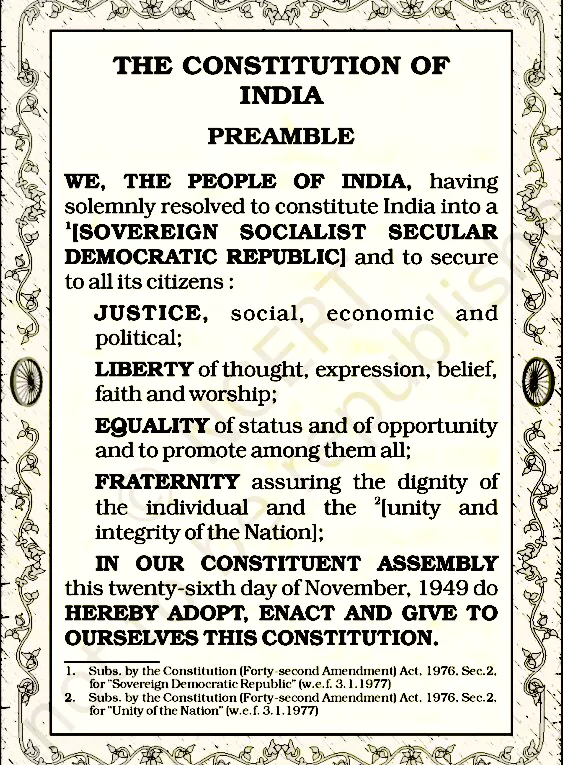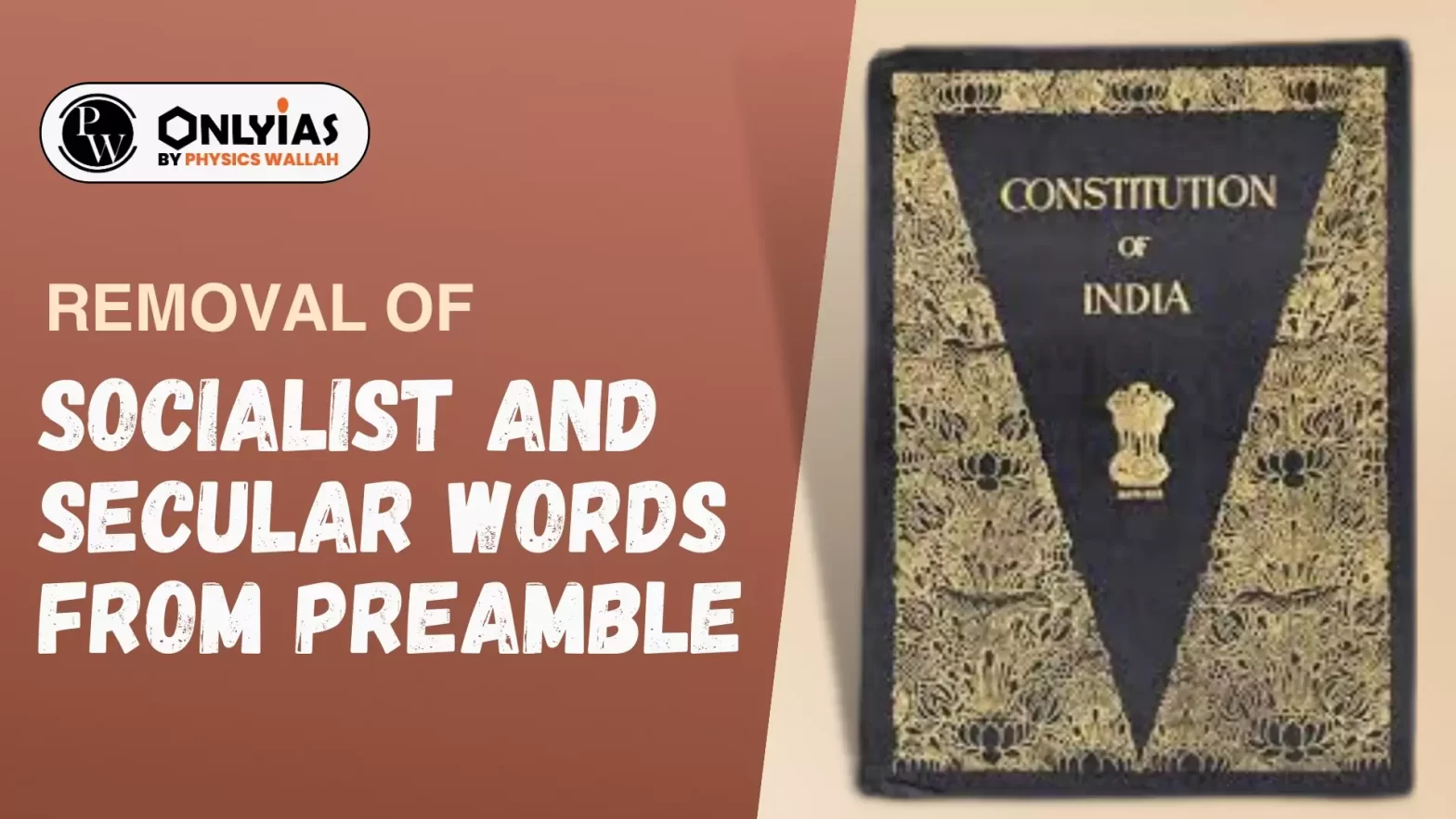Context:
This editorial is based on the news “Could Preamble have been amended without altering Constitution’s adoption date, SC asks” which was published in the Hindustan Times. The Supreme Court was hearing a pair of petitions that sought deletion of words “secular” and “socialist” from the Preamble.
About Preamble – Constitution of India
- Origin: The Preamble is based on the ‘Objectives Resolution’ introduced in 1946, drafted and moved by Jawahar Lal Nehru, and adopted by the Constituent Assembly.
- Introduction to Constitutional Principles: The preamble sets out the guiding purpose and principles of the Constitution. It is considered the master document of the Constitution.
- Adoption and Effective Date: Adopted on November 26, 1949, by the Constituent Assembly of India. It came into effect on January 26, 1950.

Image: Preamble to the Indian Constitution
-
Amendability of The Preamble
-
Amendments To The Preamble
- Reflecting Contemporary Values: These reflect the evolving values and aspirations of the society.
- Political Legitimacy: The amendment was enacted through constitutional procedures, reflecting the will of the people’s elected representatives.
- Enhancing Clarity and Relevance: Proponents suggest that the amendment clarifies the ideological stance of the Indian state, promoting transparency and relevance.
- Constitutional Adaptability: According to the SC, the Preamble is part of the Constitution and can be amended under Article 368. However, its basic structure cannot be changed.
- Promoting Social Justice: Supporters of the amendment argue that “Socialist” underscores the commitment to social justice and equitable distribution of resources. They believe that acknowledging socialism in the Preamble reaffirms the state’s obligation to address socioeconomic disparities.
Arguments for Removal of Socialist and Secular Words from Preamble
- Threat to Original Intent: Some argue that amending the Preamble dilutes the original intent of the Constitution’s framers.
- In Vishnu Shankar Jain’s Petition, the original Constitution makers deliberately chose to keep these concepts out of the Preamble.
- On November 15, 1948, Professor KT Shah proposed adding the words “secular, federal and socialist nation”, but the Assembly rejected it.
- On November 25, 1948, a second amendment was introduced to incorporate the word ”secular” in the draft Constitution. That, too, was rejected.
- On December 3, 1948, a third attempt was made to include “secular” in Article 18 of the Constitution, which was also dismissed by the Constituent Assembly.
- Violation of Constitutional Principles: Adding “Socialist” and “Secular” may contradict other constitutional principles.
- Political Tool: Opponents of the amendment raise concerns about the misuse of power to amend the constitution, potentially undermining the Constitution’s stability and integrity.
- Historical Context: Ambedkar’s rationale for omitting these terms was based on the belief that the principles of secularism and socialism were inherently ingrained in the constitution.
- Legal Implications: Scholars and legal experts raise the question of whether such changes should be subject to the same rigorous process as amending other parts of the Constitution.
Conclusion
Removing “Socialist” and “Secular” from the Indian preamble upholds original constitutional intent. Whereas, retaining these words reflects contemporary values, enhances clarity, and promotes social justice. Thus, it is up to the Supreme Court, whether to retain or remove these words in the Preamble of the Constitution of India.
| Prelims PYQ (2017):
Which one of the following objectives is not embodied in the Preamble to the Constitution of India?
(a) Liberty of thought
(b) Economic liberty
(c) Liberty of expression
(d) Liberty of belief
Ans: (b) |
![]() 13 Feb 2024
13 Feb 2024

